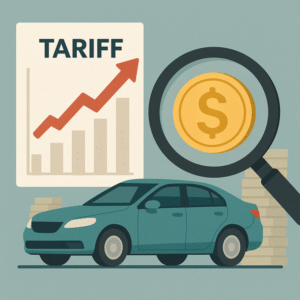Better Dividend Stock: UPS vs. Ford
When it comes to investing, many individuals look for stocks that not only offer potential for growth but also provide consistent income through dividends. Two well-known companies that have captured the attention of dividend investors are United Parcel Service (UPS) and Ford Motor Company (Ford). Each of these companies operates in distinct industries and has its own financial strengths and strategies, making them interesting candidates for comparison. In this article, we will delve into the dividend offerings of both UPS and Ford, explore their financial health, and help you determine which may be the better investment for your portfolio.
Understanding Dividends
Dividends are payments made by a corporation to its shareholders, typically derived from profits. When a company earns a profit, it can choose to reinvest it back into the business or distribute a portion of it to shareholders in the form of dividends. For many investors, these payments are a crucial source of income and a sign of a company’s financial stability.
UPS: A Steady Dividend Payer
United Parcel Service, commonly known as UPS, is a multinational package delivery and supply chain management company. As one of the leaders in the logistics industry, UPS has demonstrated consistent performance over the years.
UPS Dividend Overview
– Dividend Yield: UPS offers a competitive dividend yield, which attracts income-focused investors.
– Dividend Growth: The company has a history of increasing its dividend payouts annually, reflecting its commitment to returning value to shareholders.
– Payout Ratio: UPS maintains a reasonable payout ratio, indicating that it retains enough earnings to invest in future growth while rewarding shareholders.
UPS’s ability to maintain and grow its dividends can be attributed to its robust business model, which includes a vast logistics network and a diverse customer base.
Ford: A Historic Dividend Player
Ford Motor Company, a giant in the automotive industry, has a storied history as a dividend-paying stock. While the company has faced market challenges over the years, it has remained an attractive choice for dividend investors.
Ford Dividend Overview
– Dividend Yield: Ford’s dividend yield can be appealing, especially for investors looking for income.
– Dividend Variability: Unlike UPS, Ford has had periods where it suspended or cut its dividend payments, especially during economic downturns.
– Payout Ratio: Ford’s payout ratio has fluctuated, often reflecting its earnings performance and broader economic conditions.
Ford’s challenges in the automotive market, including competition and shifts towards electric vehicles, have led to uncertainty regarding its dividend sustainability.
Comparative Financial Performance
When evaluating the potential of UPS versus Ford as a dividend stock, it’s essential to consider their financial performance and stability.
Revenue and Profitability
– UPS: The company has consistently shown strong revenue growth driven by the rise of e-commerce and increased demand for logistics services. In recent years, UPS has reported impressive profit margins, which have supported its dividend payments and growth.
– Ford: While Ford has historically been a revenue powerhouse, recent years have seen a decline in market share and profitability due to increased competition and changing consumer preferences. The company is investing heavily in electric vehicles, which could lead to future growth but also pressures current profitability.
Debt Levels
– UPS: The company manages its debt effectively, maintaining a strong balance sheet that supports its dividend strategy. Its low debt levels and strong cash flow position make it a safer bet for dividend investors.
– Ford: Ford has higher debt levels compared to UPS, which can be a concern for investors. The automotive industry often requires significant capital investment, leading to elevated debt levels. When combined with unpredictable market conditions, this could put pressure on Ford’s ability to sustain dividends.
Market Trends and Economic Outlook
Understanding the broader market trends and economic environment is crucial when considering investment in dividend stocks.
Impact of E-commerce on UPS
The surge in e-commerce has positively impacted UPS, as more consumers turn to online shopping. This trend is expected to continue, providing UPS a steady stream of revenue. Additionally, the company’s investments in technology and logistics infrastructure position it well to capitalize on future growth.
Ford’s Shift to Electric Vehicles
Ford is undergoing a significant transformation as it pivots towards electric vehicles (EVs). This shift presents both opportunities and challenges. While investing in EV technology positions Ford for future growth, it also requires substantial capital, potentially impacting its ability to maintain dividends in the short term.
Risk Considerations
Investing in dividend stocks comes with inherent risks that investors should consider.
UPS Risks
– Market Competition: The logistics industry is highly competitive, and UPS faces threats from other major players like FedEx and newer entrants leveraging technology.
– Economic Sensitivity: While UPS benefits from e-commerce, economic downturns can still impact consumer spending and shipping volumes.
Ford Risks
– Automotive Industry Volatility: The automotive market is influenced by economic cycles, consumer preferences, and regulatory changes, which can affect Ford’s profitability.
– Transition to Electric Vehicles: Ford’s aggressive move towards electric vehicles entails risks related to production costs, market acceptance, and competition from established EV makers.
Conclusion: Which is the Better Dividend Stock?
Both UPS and Ford offer unique investment opportunities for dividend-focused investors.
UPS presents a strong case with its consistent dividend growth, robust business model, and manageable debt levels. The ongoing growth in e-commerce is a considerable advantage for the company, making it an attractive option for those seeking stability and reliable income.
On the other hand, Ford may appeal to investors willing to accept higher risks in exchange for potential rewards stemming from its transformation into an electric vehicle manufacturer. However, the uncertainty surrounding its dividend sustainability should be factored into any investment decision.
Ultimately, your choice between UPS and Ford will depend on your investment strategy, risk tolerance, and income needs. Conduct thorough research and consider how each stock aligns with your financial goals before making an investment decision.



